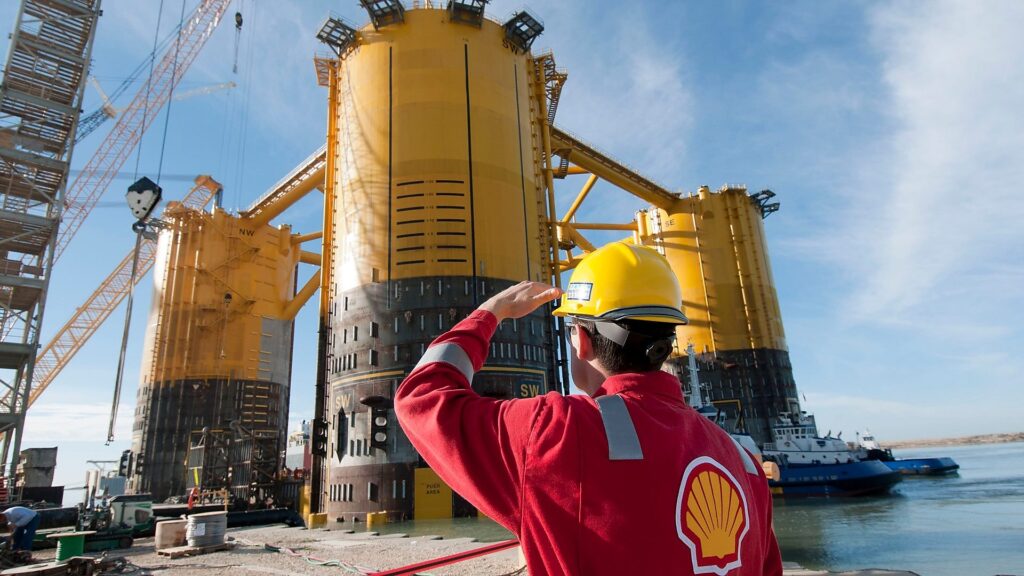Email: info@u-automation.com | Tel/WhatsApp: +234-705-698-4607 |


Crude production set to fall 1% to 2% per annum under new strategy to reduce carbon intensity as investment bar will be ‘set higher’
Shell will oversee a “gradual managed decline” of its oil production in the coming years as it “sets the bar higher” for new upstream investments as part of wide-ranging plans unveiled on Thursday to reduce the carbon intensity of its business.
Gain valuable insight into the global oil and gas industry’s energy transition from ACCELERATE, the free weekly newsletter from Upstream and Recharge. Sign up here today.
The Anglo-Dutch supermajor said its oil output peaked in 2019 and is set to fall by between 1% and 2% annually, as fields decline naturally and assets are sold off.
Shell’s oil output in 2019 was about 1.7 million barrels per day.
Gas output will, however, grow proportionally as part of the production mix in future, chief executive Ben van Beurden said.
Overall Shell production in 2020, including gas, was about 3.4 million barrels of oil equivalent per day in 2020, slightly lower than the year before.
‘Oil indeed has peaked’
“The 1% to 2% reduction we see is… a gradual managed decline in our oil production,” van Beurden told journalists after the company unveiled its new strategy to accelerate cuts in the carbon intensity of its business.
“But at the same time… we’re going to also increase the percentage of natural gas in the mix to 55% by the end of the decade.
“So altogether, you could probably say that oil and gas production is roughly staying flat, but oil indeed has peaked.”
Van Beurden promised the upstream business will become “more focused, more resilient and more competitive”, continuing to provide material cash flows well into the 2030s.
It will continue to attract about $8 billion per annum of capital, which equates to about 36% to 42% of Shell’s total annual spending budget of $19 billion to $22 billion.
This compares to $4 billion per annum that will be spent on the integrated gas unit.
‘High-graded’ exploration
Shell will continue to “high-grade” its exploration activity, reducing annual spending from about $2.2 billion in 2015 to about $1.5 billion between 2021 and 2025.
“We have attractive opportunities which we plan to take in the first half of this decade,” said van Beurden.
However, after 2025, Shell does not anticipate entering into a new frontier exploration areas, he said.
Across the upstream business, Shell has cut its unit development costs by more than 50% since 2015.
Its current projects have an average internal rate of return of between 20% and 25% at the time of final investment decision and an average breakeven price of around $30 per barrel, while payback from the average Shell project takes seven years, van Beurden said.
Upstream returns
“We expect higher returns in our upstream portfolio on investments than … in some other parts of the business and that is simply because our upstream projects are subject to bigger risks, geological disappointments, the need to fund the exploration bits and pieces that didn’t quite work out,” he said.
“And indeed, there is the commodity markets that can give quite a significant swing to the profitability of these assets.
“So, we set the bar a little bit higher for them in order to still come out at a good return of the overall portfolio.”
He added: “Absolutely, we will continue to invest. We will continue to explore to round out our investment portfolio as well. But we do it with a relatively high bar in terms of profitability and a relatively clear view about when these projects need to payback.”
Nine core upstream areas
As announced previously, Shell plans to focus on nine core upstream regions — Brazil, Brunei, the Gulf of Mexico, Kazakhstan, Malaysia, Nigeria, Oman, the Permian basin and the UK North Sea — which will generate more than 80% of upstream cash flows and these will attract about 80% of upstream capital spending.
“These are positions where we have superior capabilities, the potential for growth and access to strong integration with integrated gas and trading,” van Beurden said.
The rest of Shell’s interests will be run a as a “lean portfolio” tasked with either maximising cash generation or developing to a point where they could become core positions.
“In some cases, such as onshore Egypt and the Philippines, we will simply divest,” said van Beurden.
Van Beurden repeated comments made earlier this week that it is reviewing its onshore position in Nigeria but said its offshore assets in the West African country remained one of the company’s “heartlands”
WhatsApp us